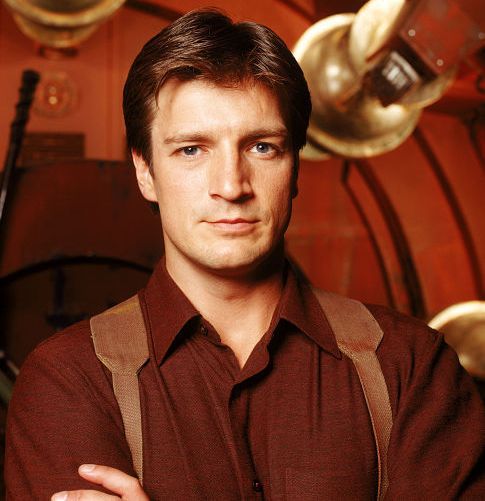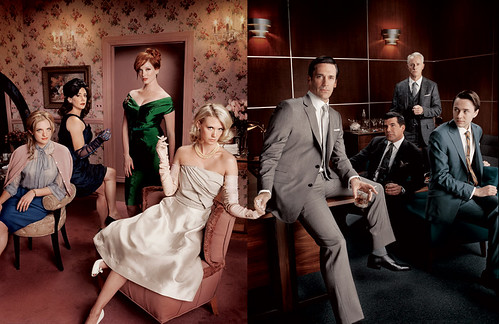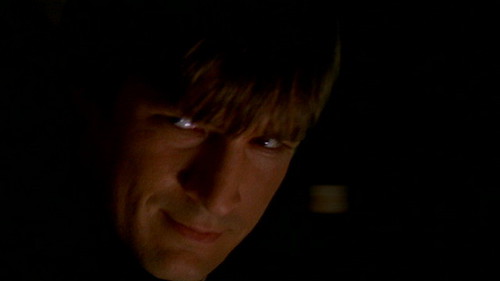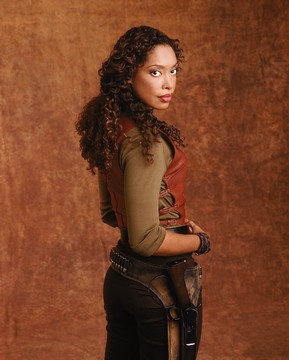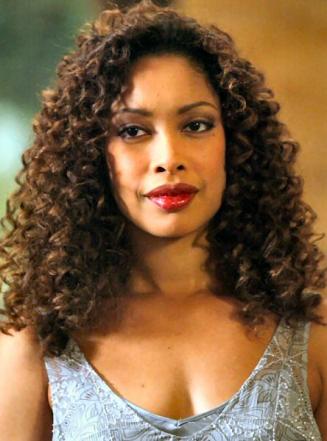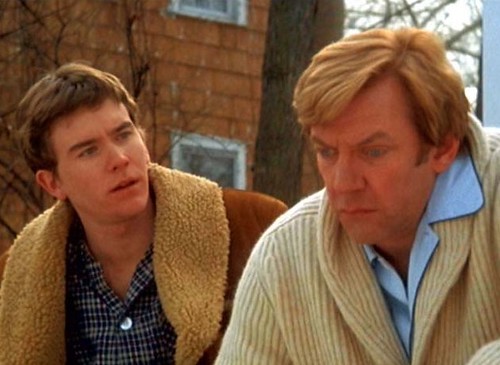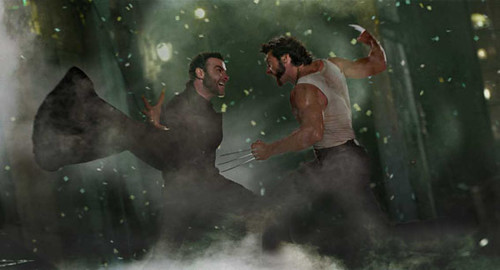
The television show “Dollhouse” is about the L.A. branch of an underground organization that brainwashes individuals and imprints them with different personalities. These dolls, or “actives,” supposedly volunteer to stay for a period of five years. Their assignments range from romantic engagements to hostage negotiations. In their default state, they are docile creatures with no memories of their previous life or imprints. When imprinted, they wholly believe they are another person. The show is on its second season.
Fox is pulling Joss Whedon’s new creation “Dollhouse” off the air during November. Many see this as a sign of its inevitable doom. The most recent Whedon brainchild broadcast by Fox was, “Firefly,” which followed a lovable band of bandits traveling through space. The station egregiously mishandled this mixture of Western and science fiction. Advertising was poor, episodes were shown out of order, and its Friday night scheduling was irregular. “Firefly” gained extraordinary popularity when it reached DVD and has been hailed as one of the best television shows of all time due to its fantastic characterizations, wit, and originality.

Fans expected the same from “Dollhouse,” which greatly differs from “Firefly” and other Whedon shows like the dark but entertaining supernatural dramas “Buffy” and “Angel.” When the anticipated “Dollhouse” arrived, critics and viewers condemned it for being boring, confusing, and disturbing. Through no fault of Fox, viewership plummeted, and only the fear of rabid fans (and hope for more) compelled executives to renew the show for a second season. Its Friday night spot also does it no favors.
From the very first episode, “Dollhouse’s” acting, writing, and themes are fascinating. But why has this thought-provoking program been rejected? Perhaps because it is strange, complex, and sometimes slow moving. Maybe the turnoff is the horrifying premise underlying the action. Also, “Dollhouse” may not work well on television: the fantasy-selling babes in television advertisements eerily resemble those in the Dollhouse, a scathing symbol of television itself.

Or is it that “Dollhouse” is simply ahead of its time? Its metaphors are expansive, its explorations virtually limitless. Its chief focus seems to be the unavoidable quest for identity.
Those who run the Dollhouse compare it to the Garden of Eden. It is laughable that they liken themselves to God and the zombieland they oversee to paradise. However, there are similarities: the Dollhouse is a luxurious setting, and the dolls know no evil. When one of them begins to read, she is chastised. And unbeknownst to their puppet masters, the dolls mirror Adam and Eve’s inevitable curiosity.
 Because the supposedly voluntary dolls are unaware of their predicament, their situation is more palatable than real life human trafficking. However, it is also eerier. Is the fact that they do not know that they are slaves better or worse than the alternative? The actives’ implanted memories can be sweet or traumatic, but after their painful memory-wiping treatments, they forget all joy and grief.
Because the supposedly voluntary dolls are unaware of their predicament, their situation is more palatable than real life human trafficking. However, it is also eerier. Is the fact that they do not know that they are slaves better or worse than the alternative? The actives’ implanted memories can be sweet or traumatic, but after their painful memory-wiping treatments, they forget all joy and grief.
Of course, those who use the technology do not really know what the dolls remember. Throughout most of the show, the dolls’ memories emerge in spite of their theoretical impossibility.
Because of this, character development is gradual, so concepts rather than characters often drive the show. In the episode “Stage Fright,” pressures faced by a superstar singer are comparable to those in the Dollhouse. The singer gets all she wants, which is not what she needs. She lives for, but is nearly destroyed by, her obligation to fulfill others’ fantasies. In “Belle Chose,” similarities are drawn between a serial killer, a sleazy professor, and the Dollhouse. The misogynistic serial killer arranges women in bizarre, mannequin like poses and pretends to play golf with them. The professor manipulates a ditzy student by discussing the bawdy “Wife of Bath’s Tale” in Chaucer’s Canterbury Tales. Both espouse that women have a special power that men lack, though the professor directly contradicts the serial killer’s exclamation that women are whores. He masks his prurient seduction game in the name of empowering and educating a young woman. Those running the Dollhouse perfectly match an FBI agent’s description of the serial killer:
“At some point you decided real people weren’t worth it. You pushed them away. Alienated everyone in your life. So you could surround yourself with fakes. The copies. Made you feel like you had some control. You’re not in control.”

Control is one of “Dollhouse’s” central themes. It focuses on both prey and predator, showing that the predators destroy themselves in the process of seeking power. As with any message in “Dollhouse,” its conclusion about control is twofold, one sinister, the other promising. One, humans instinctively desire to dominate others. Two, true control over others is a delusion.
Another subject with two converse answers involves love. One character states that fantasy and illusion are important elements of all love. Yet the audience witnesses an innocent love story between two dolls whose sex drives have been allegedly deactivated and who should not form deep attachments to one another. The attempted (and failed) neutralization of their libido is reminiscent of any situation in which individuals try to control others’ sexuality, whether through societal direction or rape.
 As stated, character growth is gradual. This is because half of the characters lose their memories in each episode, while the other half have a moral block to their development. The near static nature of the characters makes any change all the more remarkable.
As stated, character growth is gradual. This is because half of the characters lose their memories in each episode, while the other half have a moral block to their development. The near static nature of the characters makes any change all the more remarkable.
The central character Echo (Elizah Dushku) grows the most. She is an active who shows superlative ingenuity and independence in every personality including her simple home state. She begins to retain information and impressions, thus beginning her lengthy and bewildering search for identity. Other prominent actives are played with versatility by the lovely Dichen Lachman and expressive Enver Gjokaj.

Those who run the Dollhouse are arguably emptier than the dolls at their most vacant. Employees include Harry Lennix’s gruff but paternal Boyd Langton, Echo’s bodyguard, whom she is taught to trust unswervingly. Luckily for Echo, Boyd is as moral as they come at the Dollhouse.
Another employee who apparently respects the dolls is Dr. Claire Saunders (Amy Acker) who has scars from a series of knife slashes on her face. She is serious and withdrawn, therefore finding it difficult to work with the smug Topher Brink (Fran Kranz), whom she dubs “a sociopath in a sweater vest.” Topher is the scientist who tampers with the dolls’ brains to imprint them with different personalities. Though he is the drollest character, Topher’s unflinching fascination with the dolls as scientific subjects, even as they cringe in pain, makes him one of the creepiest. Yet beneath his humorous arrogance and intelligence, he is a lonely child. Topher’s horror when faced with the ugly consequences of amorality indicates that he may not be irredeemable.
 Adelle DeWitt (played crisply by Olivia Williams) is a lonely person of another order. All grown up, this poised Brit rules the Dollhouse with steely elegance. She is protective of her business and dolls, but will show no mercy if crossed. As chilling as she is, Adelle’s rare vulnerability is heartbreaking. At her side is the unpleasant head of security Laurence Dominic (Reed Diamond), who suspects and dislikes Echo.
Adelle DeWitt (played crisply by Olivia Williams) is a lonely person of another order. All grown up, this poised Brit rules the Dollhouse with steely elegance. She is protective of her business and dolls, but will show no mercy if crossed. As chilling as she is, Adelle’s rare vulnerability is heartbreaking. At her side is the unpleasant head of security Laurence Dominic (Reed Diamond), who suspects and dislikes Echo.
There is one man trying to bring down the Dollhouse: the FBI agent Paul Ballard (Tahmoh Penikett), who faces numerous obstacles from without and within. Hardly a comforting presence, he is obsessed with not only the Dollhouse, but with the elusive Echo. Other agents, none of whom believe in the existence of the Dollhouse, taunt his heroic fantasy. All except his doting neighbor Mellie (Miracle Laurie).

Over the proceedings looms the ominous presence of former active Alpha, a genius inadvertently created by the Dollhouse. The cause for Dr. Saunder’s facial scars, Alpha gained access to his imprints and slaughtered dolls and employees before escaping. Because he had showed precociousness while an ordinary doll, all creative dolls are watched with fear and hatred.
“Dollhouse” isn’t perfect, though. The writing is generally excellent and subtle, but it is also occasionally heavy handed, as is the music. Believing the science is a leap of faith. One could argue that its brutal examination of gender expectations is exploitative, but in this way the show forces the audience to look at their own attractions, compulsions, and principles.
 One of the common criticisms of the show is that those running the Dollhouse are either apathetic or think they are doing good. But that is what makes the scenario so terrifying. “Dollhouse” is a muffled nightmare that almost everyone in it mistakes for a dream. As the childlike dolls sit on comfortable cushions, above them in the imprinting room light flashes like Frankenstein’s laboratory.
One of the common criticisms of the show is that those running the Dollhouse are either apathetic or think they are doing good. But that is what makes the scenario so terrifying. “Dollhouse” is a muffled nightmare that almost everyone in it mistakes for a dream. As the childlike dolls sit on comfortable cushions, above them in the imprinting room light flashes like Frankenstein’s laboratory.
“Dollhouse” delves into dehumanization, autonomy over the body, and moral responsibility. It questions consciousness and death. It asks if ignorance is bliss and when a flawed system is fundamentally defective. There are many contemplative, evocative moments that some may dub “boring,” such as when Echo sinks to the bottom of a pool or draws a face in a misted mirror after seeing a “broken” Picasso painting.
The television series “Dollhouse” is a very dark tale that has suffered in the same way as the film “Jennifer’s Body.” The series and the movie promised fun, violence, and a sexy female lead. Thus the audience, disappointed with a lack of excitement, claimed both were dull. Critics, due to their focus on surface content, label both shows superficial. In fact, “Dollhouse” and “Jennifer’s Body” may have been too challenging and multilayered for conventional audiences.
“Dollhouse” is funny, moving, and intense. If you can bear its starkness, watch it with an open mind. As one fan-made advertisement coined, “Shatter your expectations.”





